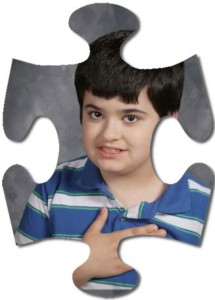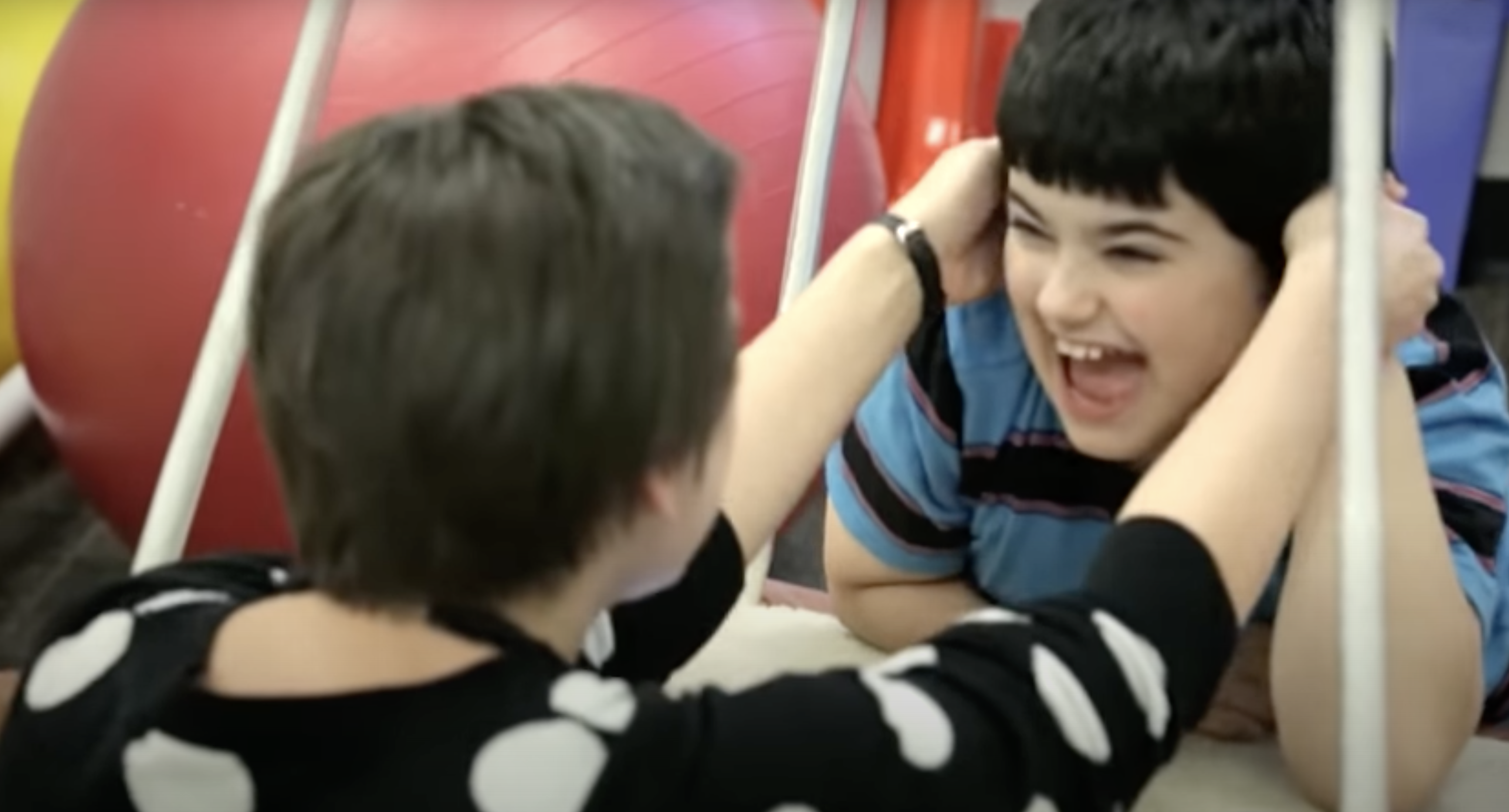This post was written ten years ago. Thankfully, mercifully, bedtime routine has become more routine in the intervening years. We still have meltdowns, late-night snacks, and middle-of-the-night refrigerator raids, but medication, understanding, and music have made bedtime much more peaceful.
When Connor was born, no one wearing a lab coat and carrying a clipboard came into our hospital room and said, “I’m sorry to inform you, your son has autism.” That’s not how autism works. Autism is subtle at first. We left the hospital with a healthy and happy baby boy. Our hopes and dreams were intact, and life progressed normally.
I sang with all three of my kids when they were little. Mostly “Old McDonald.” I would start the song, and they would join in with the “EIEIO” part. I remember teaching Connor the song, his eyes lighting up as I sang, “Old McDonald had a farm.” He looked me in the eye, completely engaged, and said, “OH! EIEIO!” We proceeded with cows, pigs, and other farm animals; each time, he would join in, “EIEIO!”
We first noticed something was wrong at about fifteen months. Connor stopped making eye contact. Interest gave way to obsession. He would sit and rock or wave his arms for what seemed like hours. And he was losing his language.
“Old McDonald” was one of the first casualties. The joy of interacting with my son was replaced with the confusion and heartache of watching him isolate himself, focus on his own little world, and blot me out with endless repetitions of “EIEIEIEIEIEIEIEI.”
It would go on and on. Never-ending, never letting me join in. The joy I had experienced sharing the song with my child was replaced with the fear that I would never get him back.

Let me tell you what I wish someone had told me: You know your child better than any doctor.
EIEIEIEIEIEIEIEIEIEIEIEIEI
Well-meaning doctors told us that boys were different from girls. He was healthy and happy after all, so give him time. Don’t rush him. He would start talking any day now.
Let me tell you what I wish someone had told me: You know your child better than any doctor, and you spend more time with your child than a doctor ever will. If you sense something is wrong, make the doctor listen. If they don’t, find another doctor. Do not delay; do not wait for your child to grow out of it. Get help as soon as you realize something might be wrong. Early intervention is critical.
And realize this is even more frustrating for your child than for you. I often think it must be like swimming through syrup for them. They are constantly fighting a world around them that is simultaneously overwhelming and holding them back.
Carly Fleischmann, who herself is affected by autism and non-verbal, puts it this way, “It feels like my legs are on fire and a million ants are crawling up my arms.” This is the world my son constantly lives in. The frustrations and inconveniences I experience due to his autism don’t compare.
As we lost Connor day by day to autism, he lost sleep night after night. Autism doesn’t shut off; it doesn’t allow the child to calm down and sleep. I spent most nights with him in a recliner, holding him and trying to get him to sleep.
Little did I know at the time that this was the kind of therapy he needed. I would hold him and methodically squeeze him. First, his legs, then his arms, holding him very tightly. It would take an hour or so every night, but he eventually fell asleep. Today, when he’s frustrated, he still asks for squeezes. He will hug me tightly, guide my hands to his head, ask for pressure, even use his iPad to say, “Open, squeeze,” and offer me his leg for more pressure and squeezing.
Once we had a diagnosis, we had the opportunity for medication. The very first need to be addressed was sleep. We all know that we cannot function without proper rest. Imagine how that need is multiplied when you struggle daily with a world that constantly challenges you.
I’m no doctor, but it seems to me that Connor’s little body and brain didn’t know how to deal with the effect of the medicine and the sensation of being sleepy. The first night he was medicated, he fought sleep to the point that I could no longer hold him down. He was up, running through the house, spinning in circles and jabbering constantly.
EIEIEIEIEIEIEIEIEIEI!
On the other hand, I was in our recliner in the dark, trying to fight off my own desire for sleep and praying that Connor would give up soon. I remember watching him, silhouetted by the light from the kitchen, as he continued to run through the house at full speed.
EIEIEIEIEIEIEIEIEIEIEI!
Then came the moment when he had had enough. He tensed every muscle, looked up at the ceiling, and uttered his defeat with one last breath.
NIGHT NIGHT!
And with that, he crumpled to the floor, asleep.
That’s my son’s world—that’s our world. And that was the last “Night night.” There’s no tucking in, and there are no bedtime stories. There is only his struggle against himself and a world that just doesn’t understand him. The only bedtime prayers are the ones we utter in desperation for this to be a good night–one where we all get to sleep.
Occasionally, those nights happen.

Bret, thanks for sharing your world with us.
Thank you for sharing your journey Bret. This one really hit home hard…
Bret, Thank you so very much for your writings. I know virtually nothing about autism, but I do know about being a parent and loving your children. Your story is heart-wrenching, but at the same time, full of so much love. My prayers go with you as you travel this journey.